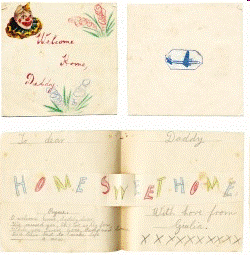Reviews - Extended
"Thank you for the book. I have been reading it in bits and gusts. More in gusts than bits on reflection, though whether I am reading it too slowly or too fast I am not sure. I get the impression this is the kind of book which keeps its own internal time and could just as well be read over a week as over a year.
Well, what have I loved? I have loved the absurdity and the magnificence and the brilliance and the beauty of it, I have loved the nonnas and the zias and the people and the bygone places of it. Basically I have laughed a lot. Primavera is truly one of the few books I have read with a permanent smile. It’s strange you know, but reading |
your book and writing this now it strikes me how close those words are to one another laugh and love, the one just a breathy incantation of the other. Isn’t that what this book is about?
Accordingly I love (and I laugh) how Primavera binds everything up in its single season, how the lives of Giulia and Tom and Orlando and the others seem to run parallel and to run amok through eternity’s backyard which infinitely recurs wherever it is (Salina, Cortona, Sydney), love how even if it is just for a moment, the book makes me feel that time is just a filament, and not the sand seeping away beneath us that it is, that all days past are not really past, but are there to touch beyond the veil of a summer flyscreen door.
And if I love its language I also love its system. Primavera reminds me of the Mandelbrodt set, you know, that figure of infinite and recurring parts. As the reader moves ever deeper through the book’s figures (la famiglia, childhood, life) we see each part in ever more detail, ever more breadth. I love how reading it I get this sense of swooping in and out, as though I were looking at one of those Persian rugs, now looking at the flourish of some arabesque among the pattern, now looking at the cosmos whole, here looking at the petal of some delicate flower, now looking at the starry patterned firmament again. Beau-ti-ful na-ture!
And I love how it reminds me of my own childhood: They passed the landmark of a statue of a black man with red loincloth and spear sitting with his dog on a cart in someone’s front garden. I nearly lost my breath when I read that. Did you know that this statue is also one of the memorymarks of my childhood? More importantly, did I?
Brava, bravissima!" Karl Eccleston
<< Previous Contact the Author
Accordingly I love (and I laugh) how Primavera binds everything up in its single season, how the lives of Giulia and Tom and Orlando and the others seem to run parallel and to run amok through eternity’s backyard which infinitely recurs wherever it is (Salina, Cortona, Sydney), love how even if it is just for a moment, the book makes me feel that time is just a filament, and not the sand seeping away beneath us that it is, that all days past are not really past, but are there to touch beyond the veil of a summer flyscreen door.
And if I love its language I also love its system. Primavera reminds me of the Mandelbrodt set, you know, that figure of infinite and recurring parts. As the reader moves ever deeper through the book’s figures (la famiglia, childhood, life) we see each part in ever more detail, ever more breadth. I love how reading it I get this sense of swooping in and out, as though I were looking at one of those Persian rugs, now looking at the flourish of some arabesque among the pattern, now looking at the cosmos whole, here looking at the petal of some delicate flower, now looking at the starry patterned firmament again. Beau-ti-ful na-ture!
And I love how it reminds me of my own childhood: They passed the landmark of a statue of a black man with red loincloth and spear sitting with his dog on a cart in someone’s front garden. I nearly lost my breath when I read that. Did you know that this statue is also one of the memorymarks of my childhood? More importantly, did I?
Brava, bravissima!" Karl Eccleston
<< Previous Contact the Author


